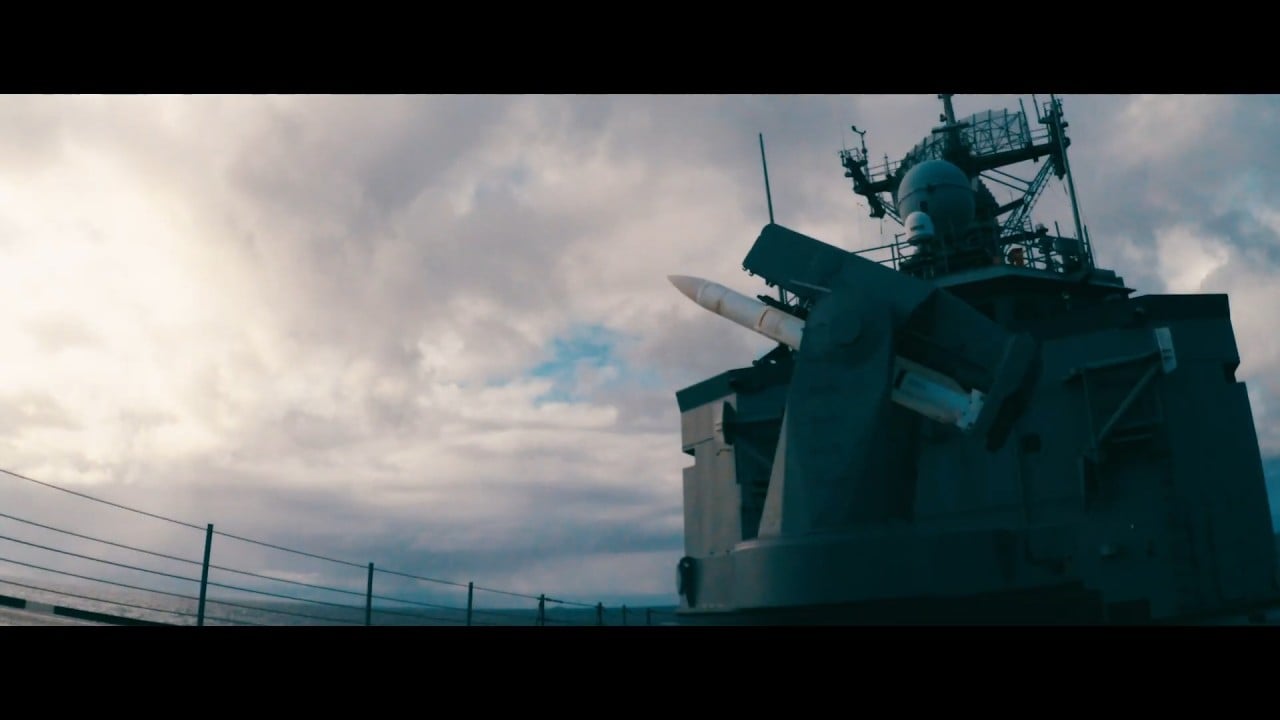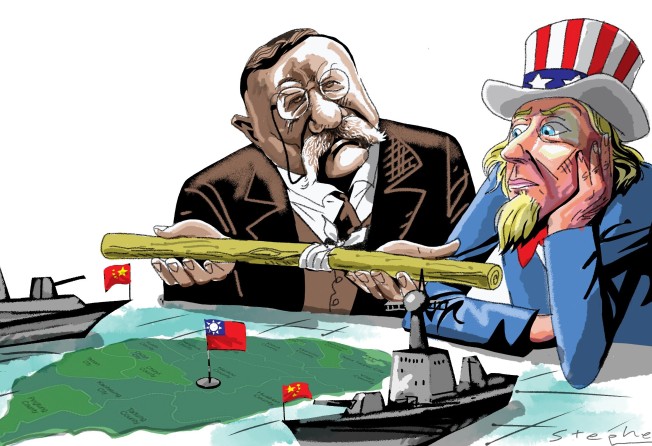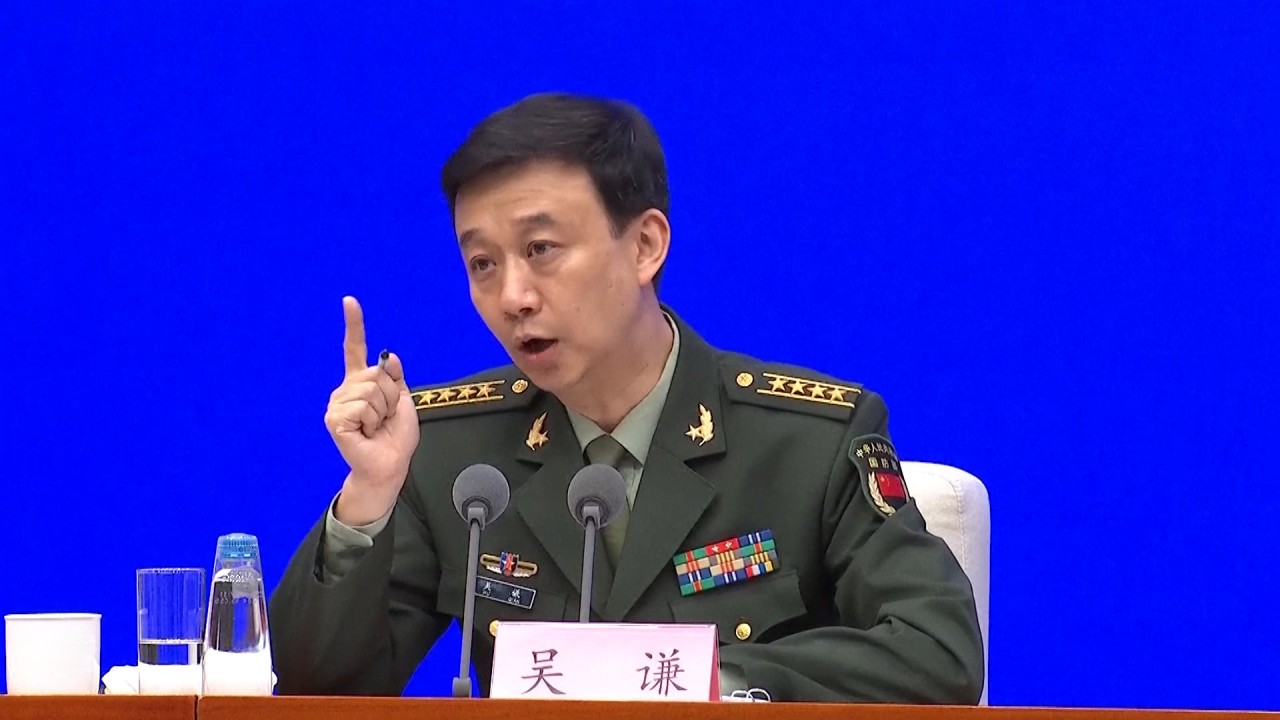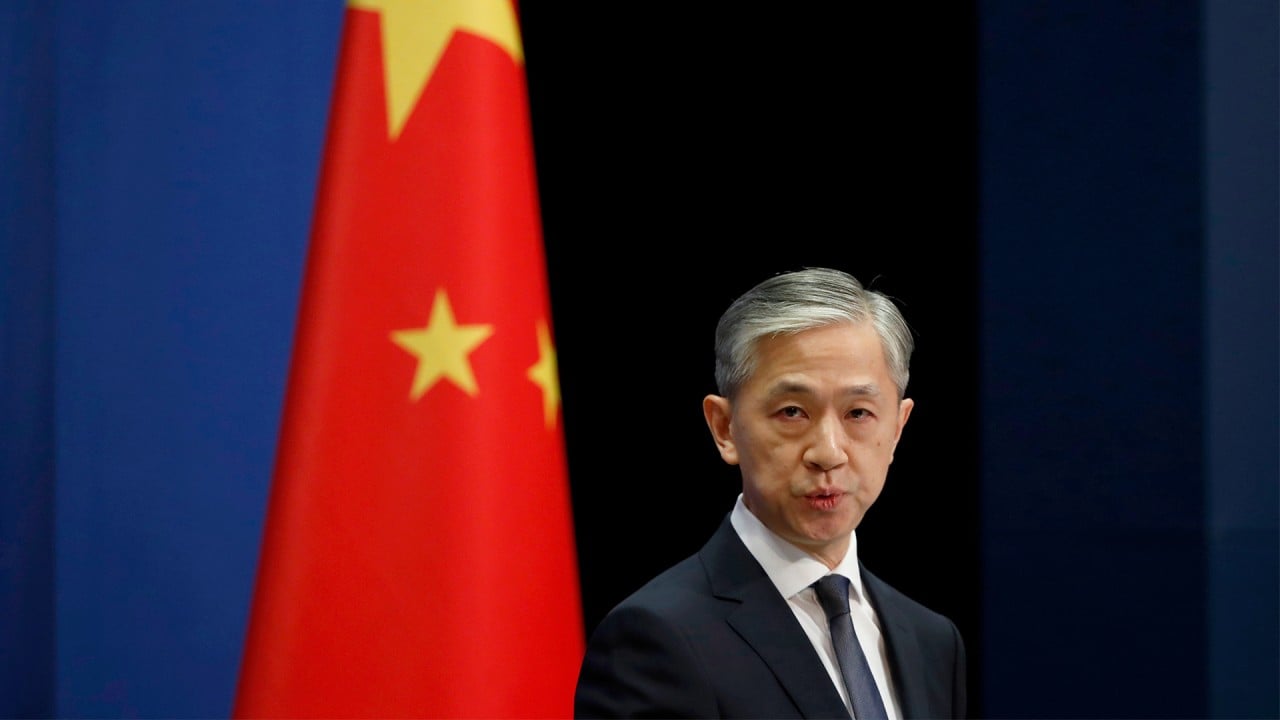
01:22
Taiwan posts video of troops ‘fending off attack from mainland’ amid worsening cross-strait tensions

Tensions within East Asia have risen to dangerous levels in recent months, starting with Hong Kong’s national security law ending its autonomous status within China, and including a deadly confrontation between Chinese and Indian troops in the Himalayan mountains, with both sides signalling willingness to escalate the crisis, even if it leads to war.
However, it is China’s escalating threats towards Taiwan that have many fearing a war with the United States. China’s state media have issued dire warnings that China is prepared to invade the island and even threatened the life of Taiwan’s President Tsai Ing-Wen should she violate China’s Anti-Secession Law.
Most recently, China responded to an American government delegation to Taiwan by flying dozens of air force bomber and fighter sorties across the sensitive median line that has long separated Taiwan from the mainland.
In response, Richard Haas, president of the Council on Foreign Relations, argues that the US should respond to China’s provocations by ending its decades-long policy of “strategic ambiguity”, and announce its willingness to defend Taiwan against a Chinese attack. The US would, however, remain committed to the one-China policy and oppose Taiwanese secession.

01:22
Taiwan posts video of troops ‘fending off attack from mainland’ amid worsening cross-strait tensions
China experts have strongly criticised this article, warning that such a shift in US policy would destabilise the region and even bring on the attack it was designed to prevent.
More importantly, it puts the cart before the horse. Before the US should make any changes to its declared policy in the region, it must restore the deterrent threat that China’s growing military power has eroded, by first improving Taiwan’s defences and deploying the necessary military power to make a deterrent threat, ambiguous or not, convincing.
Strategic ambiguity has its origins in the early 1950s as US president Dwight Eisenhower faced the growing possibility of a Chinese invasion of Taiwan’s Quemoy-Matsu island chain. He feared a US declaration of no-defence for the islands would invite a Chinese attack, much as many believed Dean Acheson’s exclusion of South Korea in his 1950 Perimeter Defence speech caused the Korean war.
Eisenhower desperately wanted to avoid US military intervention, which would almost certainly result in nuclear warfare against the Chinese mainland, millions of deaths and war with the Soviet Union. But though Eisenhower’s public declarations were equivocal, US military power was unmistakable and more than capable of defending the region against China.
The US extended the policy of strategic ambiguity to Taiwan with the 1972 Shanghai Communique, followed by the withdrawal of US recognition of Taiwan as China in 1979. As relations between China and the US improved over the next few decades, the possibility of confrontation between the two powers seemed remote. That is no longer the case.

01:22
Any attempt to seek ‘Taiwan independence’ is a dead end, says China
Beijing’s increasing belligerence is troubling, and a reflection of its growing belief that it can launch a devastating cross-channel attack. This is an opinion echoed by many US strategic planners who contend that such an attack would rapidly overwhelm Taiwanese defences even with US assistance, and who predict that “Taiwan would fold in a week or two”.
China’s increasing willingness to attack Taiwan coupled with Beijing’s growing confidence in an easy victory have undermined deterrence in the region, something a shift in declaratory policy cannot repair.
Rather than declaring a clear US commitment to defend Taiwan, the US should instead remain faithful to Eisenhower’s combination of declaratory ambiguity and strategic clarity by building a convincing capability to defend Taiwan, while repeatedly stressing that the costs to China of such an attack, whether victorious or not, would be prohibitive.

00:48
Military drills in Taiwan Strait are ‘necessary’ as US envoy Keith Krach visits island, China says
This is not a hard argument to make. History shows that cross-channel attacks are incredibly risky operations requiring enormous skill and war experience. The June 6, 1944 Normandy landings were one of the biggest campaigns in history, a combined air and amphibious assault much like China’s proposed invasion of Taiwan.
It was ultimately successful because of the invaluable experience gained from previous US landings in North Africa and Italy, where the US nearly suffered a disastrous setback at Anzio. These operations created a battle-hardened army and provided Eisenhower with important tactical information needed to plan the liberation of Europe.
Even so, Normandy’s success required one of the greatest campaigns in psychological warfare in history to convince Germany that the cross-channel attack would be against Calais instead. Mishaps nearly caused the Normandy mission’s failure at the coastline, costing the lives of thousands of US soldiers at Omaha Beach alone.
Worse yet, Allied planners were unaware of the nearly 4,000 massive hedgerows surrounding the Normandy region, which gave the Germans an excellent vantage point. Thousands of Allied soldiers died fighting to cut through the hedges. One wonders what today’s battle simulations would say about the prospects for Allied victory in 1944.

02:13
Chinese veterans of Korean War call for peace as tensions with US mount
In contrast, China’s military has had little wartime experience over the past half-century and has not engaged in such a complicated attack since the Korean war. Therefore, we can only judge possible Chinese military performance through its peacetime training missions.
Regardless, should an attack succeed, the brutal scenes of China’s bombers pounding Taiwanese cities and assassinating its leaders while army units brutally subjugate a peaceful, democratic island would cause more devastation to China’s status than the Tiananmen Square crackdown – which took a decade for China’s international reputation to recover from – and unite the world against Beijing, spelling the end of the Chinese dream.
Theodore Roosevelt once said: “Speak softly and carry a big stick, you will go far.” The US should remember this dictum when it comes to the Taiwan Strait, only that the US must also repair its stick so its soft words can convince China of the value of maintaining the status quo.
Gregory Mitrovich is a research scholar at the Saltzman Institute of War and Peace Studies at Columbia University